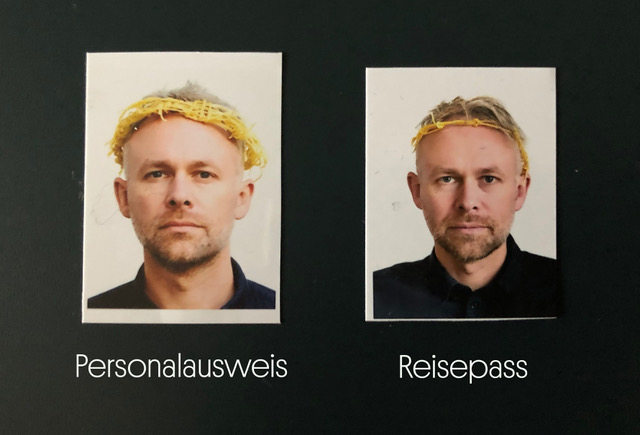
Although every Western country has the freedom of religion enshrined in its constitution or other human rights law, it seems that still only adherents to traditional, established religions actually fully enjoy that right. To address this inequality, one can organise protest marches, send tweets and write articles. If this sparks any reaction at all from government officials, it will probably be in the form of a reassurance to the protesters that they have misunderstood the situation and that all religions are truly treated equally.
But there is a different approach that forces authorities to reveal their actual position: filing an application that in some way involves religion, for example requesting official recognition for a new church or invoking a religious exception. This is what Pastafari(ans) have done in several European countries over the last ten years or so. In most cases, the authorities refuse to treat Pastafarianism, aka the Church of the Flying Spaghetti Monster (‘FSM’), on a par with other religions.
After a brief overview of this young religion and the tradition of which it is part, we will consider a series of court cases in the Netherlands and Austria resulting from applications that were rejected. From these, we will draw a tentative conclusion as to why the state authorities might want to decide that some beliefs count as ‘real’ religions, but others do not.
‘Invented religions’
In Invented Religions: Imagination, Fiction and Faith (2010), Carole Cusack described several recent spiritual movements of the Western world that are different from traditional churches and are often called ‘invented religions’. Examples of these are the Church of All Worlds (1962), Discordianism (1963), the Church of the Sub-Genius (1970s), Jediism (2000), Matrixism (2004), and the FSM Church or Pastafarianism (2005). Instead of ‘invented’, which is not a distinguishing characteristic, it might be better to call them New, Unknown, Weird and/or Small (‘NUWS’) religions – a term proposed by Derk Venema. Yet even when these religions seem, especially to members of traditional churches, satirical, dishonest or motivated by rebelliousness instead of reverence, such properties still do not set them apart from older, larger and better known religions. Surely Jesus was a religious rebel? Doesn’t Mormonism come across as a satire on Christianity?
Moreover, although there are many competing functionalist and essentialist definitions of religion, caught in an eternal power struggle, a generally agreed definition of religion does not exist. Cusack has argued that it is impossible to distinguish the religiousness of adherents to new and weird religions from the religiosity of people who identify as, for example, Christians or Muslims. Because of this vagueness, and the separation of church and state, Western governments usually adopt a very broad concept of religion. We shall see, however, that governments and courts are not so open-minded when it comes to concrete applications by adherents of a non-traditional religion like Pastafarianism.
Pastafarianism
In 2005, the Kansas Board of Education decided to oblige schools to teach intelligent design theory alongside evolution theory in biology classes. Bobby Henderson, a science student from Portland, Oregon, was baffled by this decision and sent them a letter. He explained his indignation about omitting one very important version of intelligent design, including an all-powerful, invisible, flying monster made of spaghetti and meatballs. Subsequently, inspired by this noodly deity, he wrote the Gospel of the Flying Spaghetti Monster, and later the Loose Canon appeared.
Through the internet, the FSM became very popular, and Pastafarians founded churches in his name all over the world. The Gospel tells that in Pastafari heaven there are stripper factories and beer volcanos, and in hell the beer is lukewarm and the strippers have sexually transmittable diseases. It is strongly advised to wear pirate regalia at certain occasions, and to dine with pasta and beer on Fridays, the holy day. Many Pastafari consider it obligatory to wear a colander on their heads, especially on festive occasions, although a German branch views this as blasphemy.
The eight I’d-really-rather-you-didn’ts, received by pirate Mosey from the FSM himself on top of Mount Salsa, contain the most important Pastafarian ethical standards. Overlapping with many other religious ethics, they promote an attitude of friendliness, toleration, charity, non-violence, critical thinking, modesty, joy, humour, and wise budgeting, as the sixth I’d-really-rather-you-didn’t advises:
‘6. I’d Really Rather You Didn’t Build Multimillion-Dollar Churches/Temples/Mosques/Shrines To My Noodly Goodness When The Money Could Be Better Spent (Take Your Pick):
1. Ending Poverty
2. Curing Diseases
3. Living In Peace, Loving With Passion, And Lowering The Cost Of Cable.’
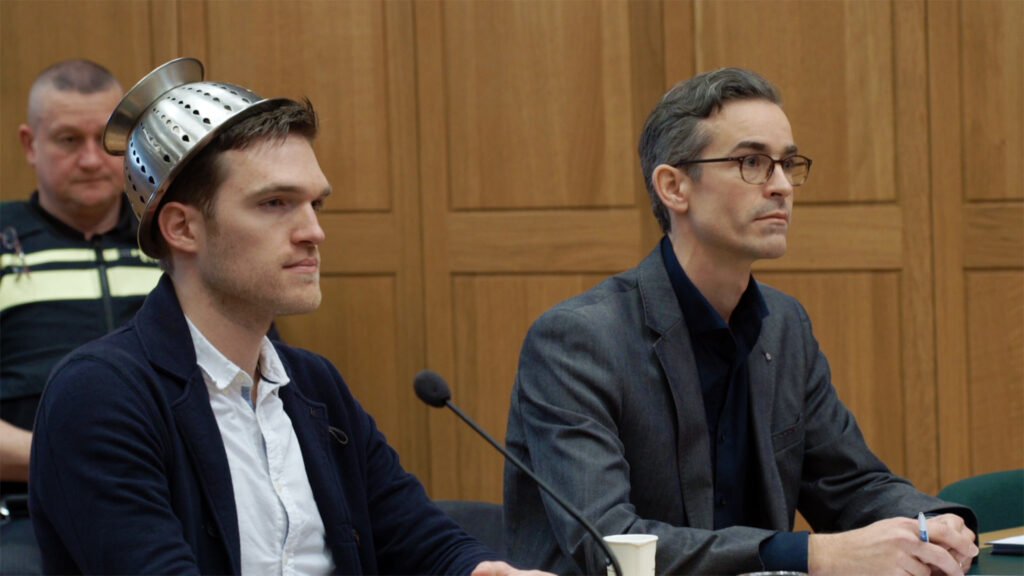
The Netherlands
In the Netherlands, four different types of applications have been filed, one of them ultimately reaching the European Court of Human Rights. The first one was an application by the Dutch FSM Church for the legal personality of ‘religious association’ (kerkgenootschap), which is exempt from several duties – e.g. concerning financial administration – that all other legal persons (associations, foundations etc.) do have, according to the Dutch Civil Code. This application was initially turned down, but approved upon appeal in 2016. It was the first and only successful application in this important year for Dutch Pastafarianism. Later in the same year, the church applied for registration as a Public Benefit Organisation, but was turned down.
Also in 2016, the same applicant, Dutch FSM church founder Dirk-Jan Dijkstra, filed a third application: this time, he requested a driver’s licence with a photo in which he wore a colander. To his disappointment, the mayor denied it, so he took it to court. The courts’ decisions in this and similar cases revolve around the exception to the rule that forbids headwear in ID photos:
‘Deviating from section 2 [banning headwear], a photo [with headwear] can be accepted if the applicant has shown that there are religious or world view [levensbeschouwelijke] reasons against not covering the head.’
Consequently, to get his ID photo with colander approved, the applicant would have to convince the court of two things: 1) Pastafarianism is a religion or world view, and 2) the Pastafarian applicant has bona fide religious reasons that require him to wear the colander in the photograph. In this case, Dijkstra cited a holy text to substantiate his claim that the colander is indeed religious headwear for Pastafari:
‘But as T.V. hadn’t been invented yet, Penelope put the Holy Colander on her head and grabbed a handy pair of salad tongs.’
(Loose Canon, Book of Penelope, Ch. 2, verse 7)
Additionally, the official FSM website recommends it: ‘Why not wear a colander in your ID photos?’
Sadly, the appeal was denied on the grounds that the applicant did not always wear the colander, and used to take it off when speaking with clients as a legal advisor. The legal status of the FSM Church as a religious association was not deemed relevant. Interestingly, the court did not decide that Pastafarianism is not a religion or world view, only that the applicant’s reasons were not exclusively religious.
(In fact, before the court cases started, a few ID applications with colander photos slipped through the bureaucratic net. This means that there are still some Dutch Pastafari who do sport a colander in their ID photos – until they expire, of course.)
The fourth Dutch Pastafari case also involved a denied driver’s licence application. This time, the courts denied it on different grounds: that Pastafarianism does not meet the European Court of Human Rights’ (ECHR) requirements for recognition as a religion or faith. According to the ECHR, a purported religion only counts as real when it ‘attains a certain level of cogency, seriousness, cohesion and importance’. After losing the case as well as the appeal to the highest Dutch administrative court, the Pastafarian Mienke de Wilde and her legal counsel (Derk Venema) took the case to the ECHR. This court declared the application inadmissible, but this was no summary ruling: in 18 pages, the court explains Pastafarianism, illuminates the Dutch case, translates the Dutch ruling, and justifies its decision that no human rights have been violated by it. Although formally the case was not decided on its merits, in reality it was.
In section 52, the court concurs with the Dutch highest administrative court that Pastafarianism suffers from a ‘lack of the required seriousness and cohesion’. The Dutch court based its conclusion on the following argument:
‘In particular, the required seriousness and cohesion are lacking. The…parodying scriptures are distinctive features in this connection. The lack of cohesion is illustrated, for example, by the relationship set out in Henderson’s letter between the decline in the number of pirates since 1800 and global warming.’
Interpretative restraint?
In their assessment of the realness of Pastafarianism as a religion, it is highly questionable whether both courts remained within the bounds of the required interpretative restraint regarding matters of religion. It is interesting that the judge who conducted the interrogation at the Dutch high administrative court also wrote an authoritative commentary on the Dutch constitution emphasising the importance of this restraint. What’s more, seriousness or satire are often in the eye of the beholder. Might Jesus not have been regarded a parodist by first century Jews? Are all the stories in the Bible and the Quran ‘coherent’? This is at least a matter of interpretation – religious interpretation, which is not the province of the law or the state.
Considering some of the religious or world view movements that have been recognised by the ECHR, it is even more incredible that Pastafarianism was rejected: Scientology, pacifism, atheism, Druidism, Divine Light Zentrum, and the Osho Movement are all judged bona fide. So even an aggressive, authoritarian, commercial and allegedly exploitative organisation like Scientology is a legally approved church, but the FSM Church is not.
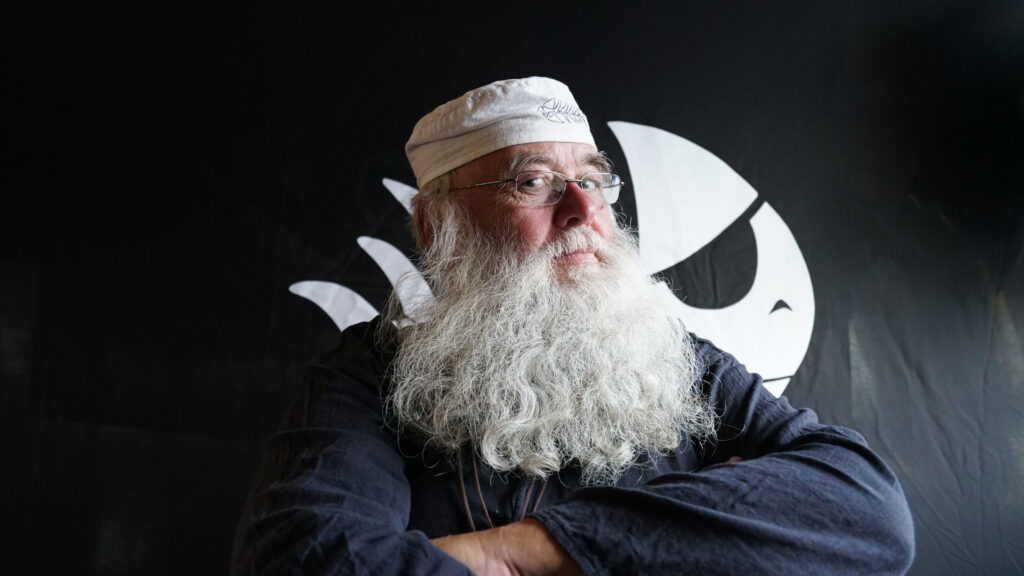
The German Pastafari Bruder Spaghettus, who already possessed a driver’s licence with pirate headgear, applied for an ID card with the same photograph. It was rejected on the same grounds used by the other courts, and Bruder Spaghettus settled for a (non-regulated) religious beard tie. The reasoning of all these courts is especially worrying because it reeks of arbitrariness. When is a ‘certain level’ of seriousness reached? Does it imply that real religions can only be deadly serious? Is humorous evangelisation forbidden? But as Carole Cusack has shown, applying humour or having a joking founder does not disqualify the followers of a faith from being considered real believers. Moreover, as the philosopher Nick Martin has argued, the courts tacitly and subjectively take seriousness as a sign of integrity. The fallacious implication is that absence of seriousness entails a lack of integrity.
Because of its non-specificity, the ECHR’s criterion of ‘seriousness’ runs the risk of being used more widely to disqualify what Venema has called NUWS religions: the religious content is judged not credible and thus there is no real religion. But that is why it is called ‘faith’: it is a leap of faith to put your trust in something incredible. State authorities seem to treat NUWS religions as ‘nuisance’ religions. These cases reveal not only these courts’ common tendency to judge the authenticity of a religion by comparing it, consciously or not, to traditional religions, but also the zealousness with which they are inclined to disqualify the FSM church. As if keen to prove the latter point, the Dutch Ministry for the Interior sent a letter to all municipalities urging them to reject any ID application with a colander photo.
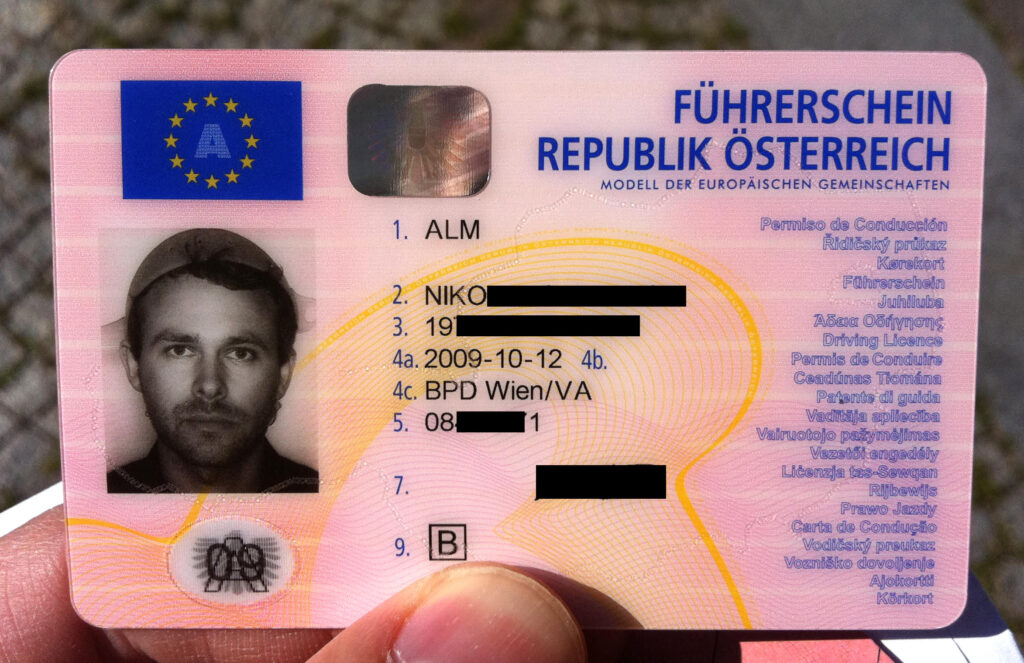
The Struggle for Pastafarianism in Austria
If you want to wear any type of headgear in your driver’s licence photo in Austria, as in the Netherlands, it is allowed only for medical or religious reasons. Other than that there is a no-hats policy.
As an atheist, Niko Alm, co-author of this article, thought this unfair and devised a plan to circumvent that rule. At the same time, he was also, and still is, a Pastafari. There is no contradiction here: you do not have to believe in anything specific, you can be agnostic or even atheist and still count yourself a member of a religious organisation – whether in Austria or anywhere else. So he donned a pasta strainer as his own personal religious headgear and applied for his licence in 2009. It required some persistence and a trip to the public health officer, who wanted to check whether he was sane enough to drive a car, but in the end Alm succeeded in procuring the first official document with Pastafarian appendages. The news went viral in 2011 and many fellow ‘believers’ worldwide followed suit. It would remain the only victory against Austrian bureaucracy for the Church of the Flying Spaghetti Monster Austria (CFSMA) until today. And many battles have been fought.
Becoming official
In 2014 the newly founded Church of the Flying Spaghetti Monster Austria filed an application with the Department of Religious Affairs to be registered as an officially recognised ‘confessional community’ (Religiöse Bekenntnisgemeinschaft). This is the first step to become an ‘officially recognised church or religious community’ (gesetzlich anerkannte Kirche oder Religionsgesellschaft) in this two-tier system of religious organisations.
In Austria, there are 16 religions falling in the ‘officially recognised’ category including the major Christian denominations, Buddhism, Judaism, Islam, and 11 confessional communities including Hinduism, the Unification Church (formerly Moon sect), and Bahá’í.
To be granted the status of confessional community, the organisation has to prove that it is a religious community in theory and practice by submitting its statute in writing and a list of at least 300 members with permanent residency in the country. The status of a confessional community does not come with a lot of benefits. It more or less serves as the anteroom to take the next step that requires membership of at least 0.2% of the population (approximately 18.000 people) and a minimum qualifying period of five years. But it is worth the wait. The status of ‘officially recognised church or religious community’ yields a plethora of privileges: religious education in schools; state-funded religious teachers, university professors and faculties; direct subsidies; tax exemptions; a blasphemy law; military chaplains, imams and rabbis; various seats in committees and national public broadcasting; and many more. The Republic of Austria is fostering a cooperative model of state and religion; it is safe to call the ‘officially recognised churches and religious’ communitieswhat they to all intents and purposes are: state religions.
The Austrian Pastafari naturally wanted to belong to this elite club of organised world views and also to benefit from the abovementioned privileges. But they were turned down. First by the Department of Religious Affairs and later – after the Church of the Flying Spaghetti Monster had taken Austria to court – by the state legal system. Finally, after five years of going through all official channels, the CFSMA was turned down by the Constitutional Court on the grounds that its members did not form a real community. In essence, the judge held that the CFSMA is not a confessional community yet, so it cannot actually have members, and instead needs to prove that at least 300 people participate in its rites. That argument is not only partially circular, it is also an elaborate divergence from the law that requires no such thing. It should not matter whether the rites are executed in large numbers at one place or whether the total number of members is made up of individuals worshipping in private.
All the other criteria were fulfilled. In the court’s sealed copy of the judgment it was clearly stated that Pastafarianism is a religion and in its character as such is indistinguishable from other established and recognised state religions. A small victory at least.
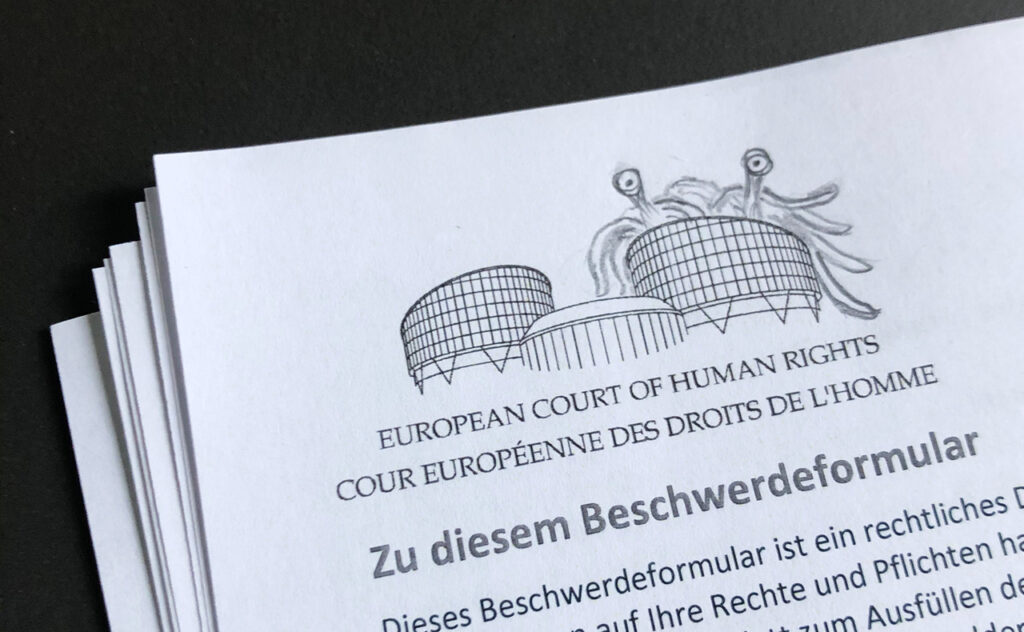
European Court of Human Rights, again
Undeterred, the Austrian Pastafari filed an appeal with the European Court of Human Rights (ECHR) in November 2019. So far, this application has remained unanswered:
‘The refusal to recognise the legal personality of the religious denomination of the Church of the Flying Spaghetti Monster violates in any case the fundamental right of the complainants to freedom of belief and conscience (Art. 9 ECHR). Art. 9 ECHR protects the right to profess or not to profess a religious community or ideology alone and privately [a point apparently missed by the Austrian courts], or in community with others, publicly or in circles of like-minded people, especially in religious services or otherwise by words or deeds. Freedom of religion includes the right to try to convince others, e.g. by teaching (ECtHR 6.11.2008 – 58911/00). This also forms the core of the scope of protection of Art 9 ECHR. These rights are violated by the refusal to grant legal personality. The establishment and existence of independent religious communities would also be indispensable for pluralism in a democratic society.’
Soon after, another appeal had to be filed at the ECHR when the Austrian legal system terminated Alm’s hopes of procuring a passport and national ID card with Pastafarian headgear. This time around, he decided to wear a modest pasta crown instead of a colander, but the authorities firmly stood their ground in denying his rights, by referring to their earlier judgment that the Church of the Flying Spaghetti Monster was not an officially recognised confessional community – and thus not a state religion. After Alm had spent several years enjoying religious freedom as far as his driver’s licence was concerned, the bureaucracy seemed to have changed its mind, and decided that religious freedom was not a right but a privilege granted only to those deemed appropriate.
‘Church’: a trademark
The Austrian Pastafarians have dragged the Republic and its institutions to court several times. Most recently, in May 2022, the CFSMA suffered another blow when it was refused the right to call itself a ‘church’, because this term was reserved for officially recognised Christian denominations. This time round, the judges followed an argument that the Department of Religious Affairs had used previously to deny the CFSMA official status: apparently, by calling their Church a ‘church’, the CFSMA may be rendering itself liable to being confused with Christian churches. This is interesting, given that Jesus Christ himself is the son of the Flying Spaghetti Monster – until anybody can prove otherwise. This makes Pastafarianism essentially a Christian denomination too.
The judge refused to see the paradox here, but he at least conceded that the Church of Scientology ought not to call itself a church either, even though it is registered as such in Austria. This time around, the Pastafarians chose not to appeal. Instead, they are going to change their name to ‘Kitchen of the Flying Spaghetti Monster’ instead. It seems more appropriate anyway, and in German the words are near-homophones: Kirche and Küche.
Self-defence
Well into the 21st century, democracies that are founded on constitutional values of equality have been expunging various forms of differentialism, whether based on gender, ethnicity or class, from their laws. Yet individual world views and organised religions are still being used to enforce legal discrimination. Freedom of religion, once part of the essence of liberty, has been transformed into a tool to secure special rights and immunise religious world views against open societies. Instead of its original function of protecting small religious communities against the state and established churches, freedom of religion is now used to protect state and established religions against small ones and their critical stance.
Pastafarianism strives to abolish these remnants of differentialism, not only in liberal democracies like Austria, Germany and the Netherlands but in political systems worldwide. The Church of the Flying Spaghetti Monster is seeping into societies globally from the US and the UK to Russia, Australia, Israel, and, rather furtively, also into countries shaped by Islam. It serves as a mirror, sometimes as a Trojan horse, a role model and a weapon of democratic self-defence.
Editor’s note: some of the legal cases in which the authors were involved were the subject of I, Pastafari (2019), a documentary directed by Michael Arthur which the Freethinker can heartily recommend. We are grateful to the latter for permission to reproduce two images from the film above.








3 comments
Your email address will not be published. Comments are subject to our Community Guidelines. Required fields are marked *
Donate